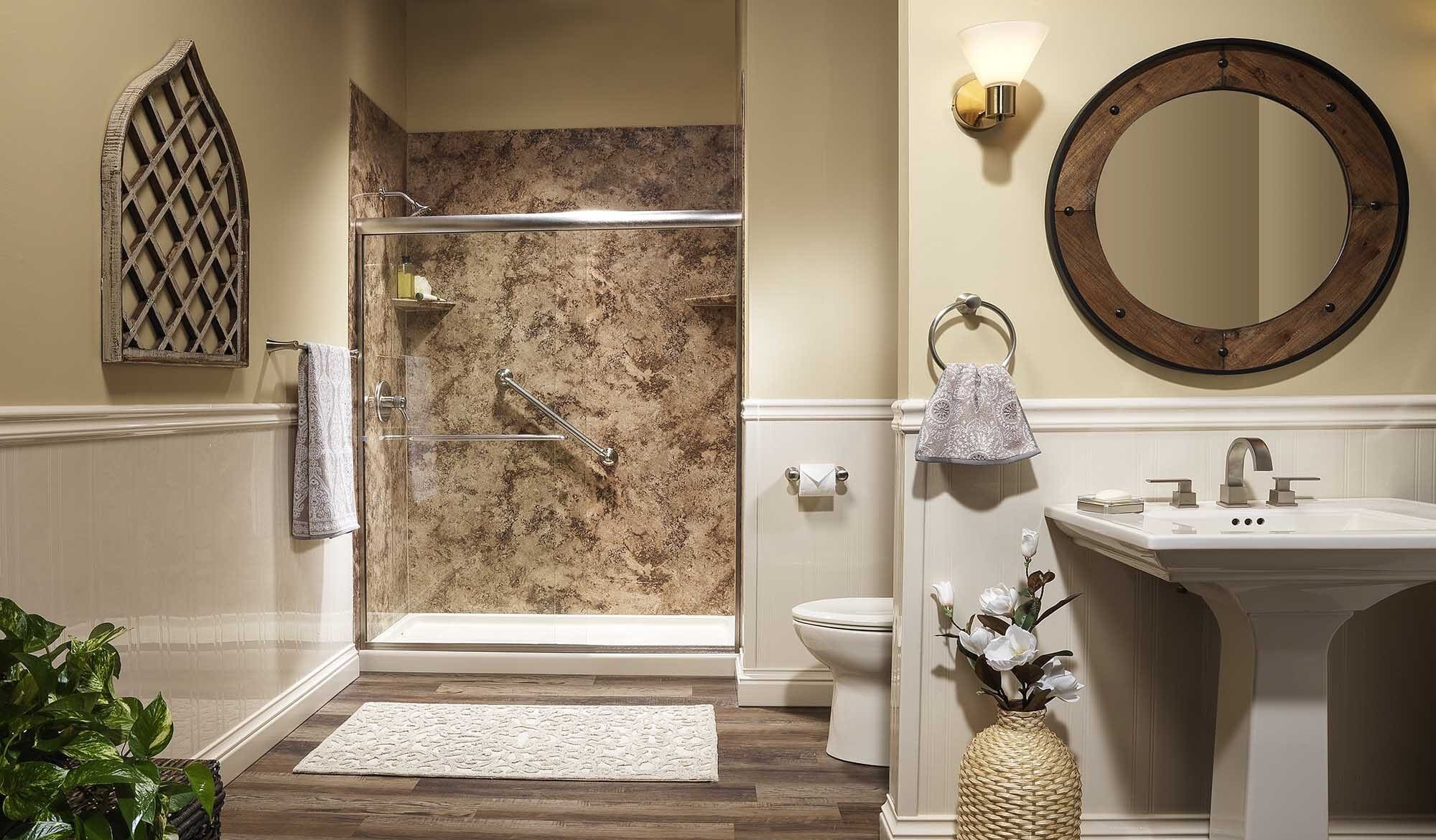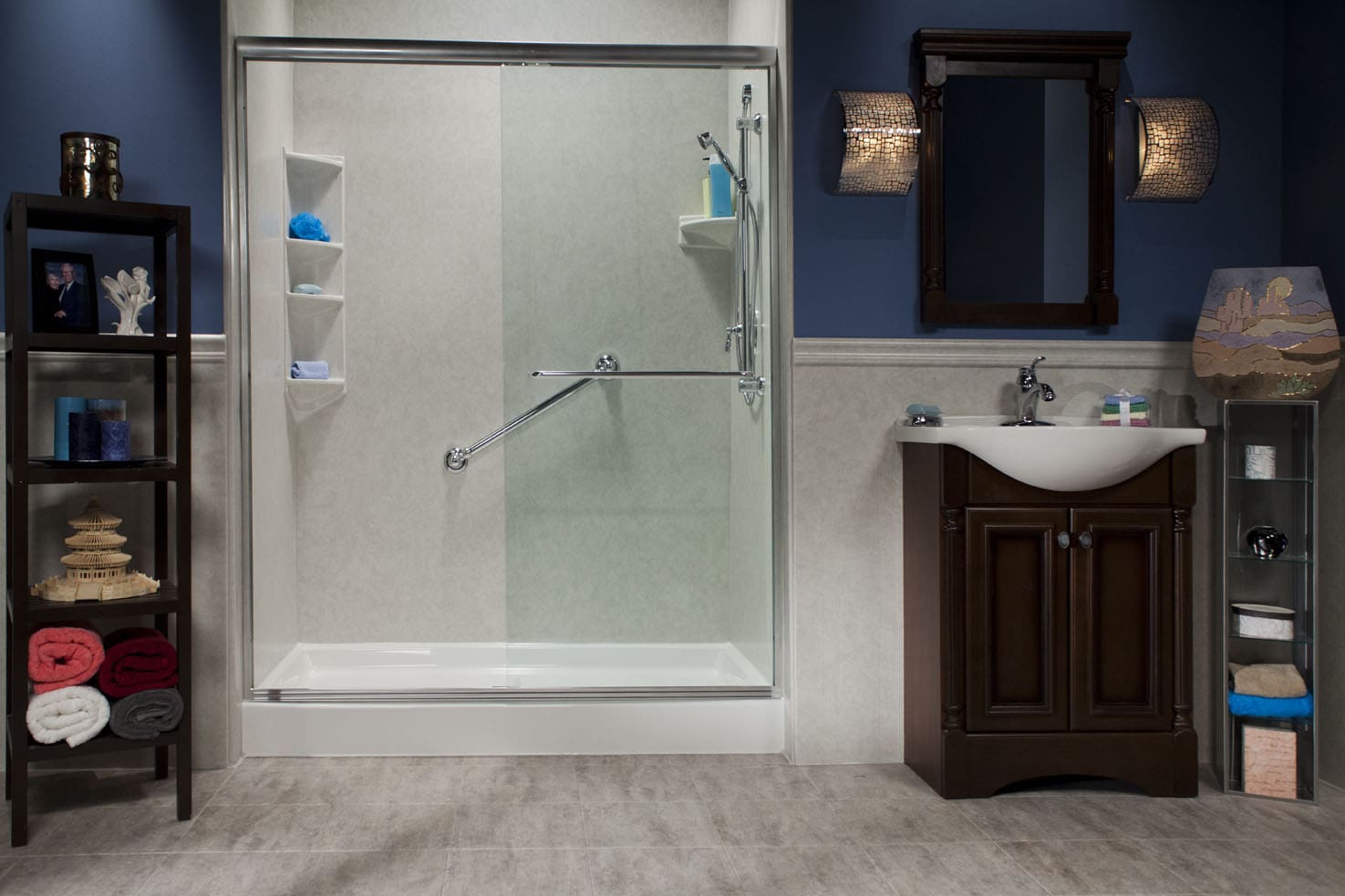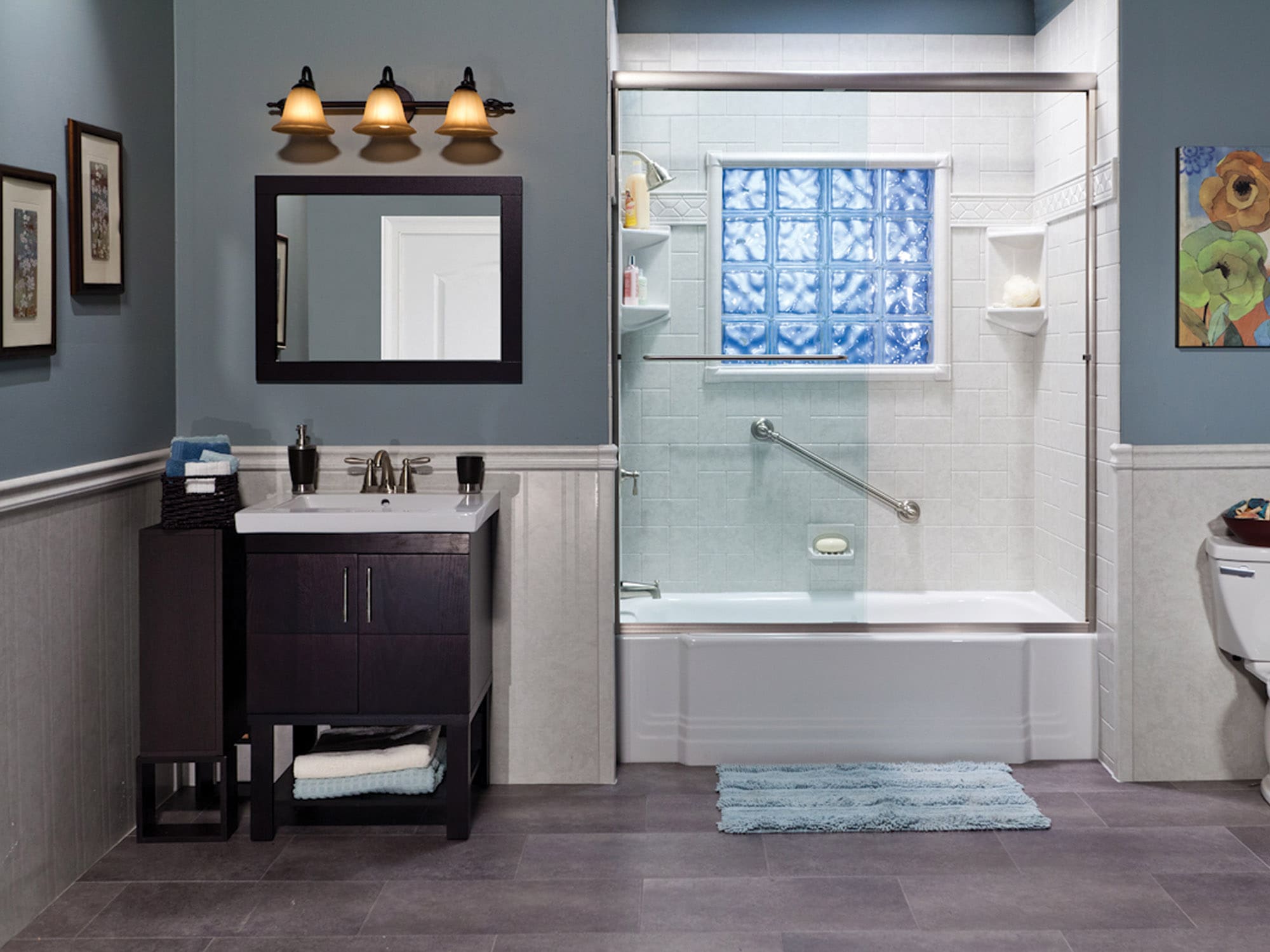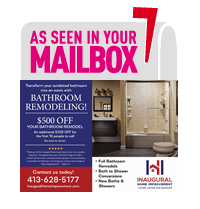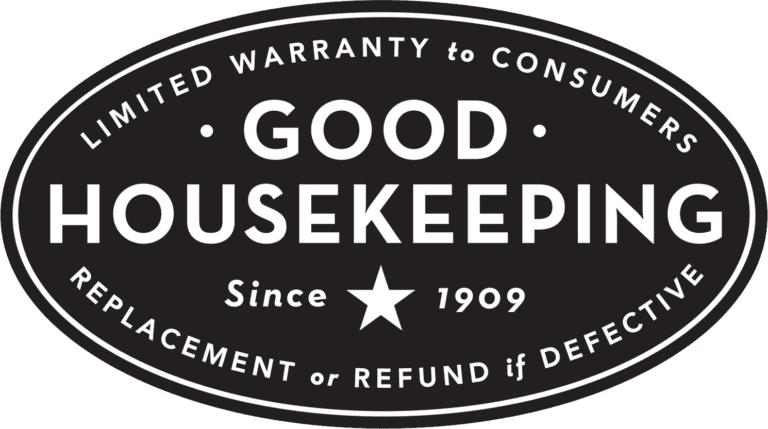Key Takeaways
- Multiple funding sources are available for ADA bathroom conversions MA, including grants, loans, and tax credits that can significantly reduce out-of-pocket costs
- Massachusetts residents have access to state-specific programs, federal funding, and local assistance that can cover 50-100% of conversion costs
- Working with an experienced bathroom remodeler Springfield MA ensures proper documentation and compliance with funding requirements
Creating an accessible bathroom shouldn’t break the bank. For Western Massachusetts homeowners facing mobility challenges or planning to age in place, numerous funding opportunities exist to make ADA bathroom conversions more affordable. Understanding these options can transform what seems like an overwhelming financial burden into a manageable investment in your home’s accessibility and your family’s future.
The Americans with Disabilities Act (ADA) has established standards that guide bathroom modifications, but the financial support available to meet these standards varies widely. From federal grants to state-specific programs, homeowners have multiple pathways to secure funding for essential bathroom modifications.
Understanding ADA Bathroom Conversion Costs
ADA bathroom conversions typically range from $15,000 to $35,000, depending on the scope of modifications needed. Basic conversions might include grab bar installation, shower threshold removal, and door widening. Comprehensive renovations often involve complete layouts changes, roll-in showers, and accessible vanities.
The investment pays dividends in safety, independence, and home value. Studies show that accessible home modifications can prevent costly medical emergencies and extend the time individuals can remain in their homes. For Western Massachusetts residents, where harsh winters make mobility challenges more pronounced, these modifications become even more critical.
Professional assessment helps determine exact conversion needs and associated costs. Experienced contractors can identify which modifications qualify for various funding programs and ensure installations meet all accessibility standards. This expertise proves invaluable when navigating funding applications that require detailed specifications and compliance documentation.
Federal Funding Programs
Veterans Administration (VA) Specially Adapted Housing Grants
Veterans with service-connected disabilities may qualify for VA grants covering up to $109,986 for home modifications. These grants specifically fund bathroom accessibility improvements, including roll-in showers, accessible fixtures, and structural modifications. The VA works directly with approved contractors to ensure compliance with accessibility standards.
Massachusetts veterans have access to additional state benefits that can supplement federal VA funding. The Massachusetts Department of Veterans’ Services provides guidance on combining federal and state resources for maximum funding coverage.
USDA Rural Development Grants
Rural areas of Western Massachusetts may qualify for USDA grants and loans for home accessibility improvements. The Rural Repair and Rehabilitation Grant program provides up to $7,500 for low-income homeowners to make accessibility modifications. These grants don’t require repayment when used for essential safety improvements.
The USDA also offers low-interest loans up to $20,000 for accessibility modifications. Combined with grants, these programs can fully fund most ADA bathroom conversions for eligible rural residents.
Social Security Administration Work Incentives
Social Security disability recipients may access funding through the Plan for Achieving Self-Support (PASS) program. This program allows individuals to set aside money for work-related expenses, including home modifications that enable employment. Bathroom accessibility improvements often qualify when they support the individual’s ability to maintain employment.
State of Massachusetts Funding Options
Massachusetts Rehabilitation Commission (MRC) Home Modification Loan Program
The MRC provides low-interest loans up to $30,000 for home accessibility modifications. These loans feature interest rates as low as 3% and repayment terms up to 20 years. The program specifically covers bathroom modifications that improve accessibility and safety for individuals with disabilities.
Eligible improvements include walk-in showers, accessible vanities, grab bars, and doorway modifications. The MRC works with approved contractors to ensure modifications meet accessibility standards and funding requirements.
Community Development Block Grant (CDBG) Programs
Many Western Massachusetts communities receive CDBG funding that supports home accessibility improvements for low-to-moderate income residents. These grants often cover 50-100% of conversion costs for eligible homeowners.
Springfield, Worcester, and other urban areas typically have established CDBG programs with dedicated funding for accessibility modifications. Rural communities may access CDBG funds through regional planning agencies that coordinate multi-town programs.
Massachusetts Housing Finance Agency (MassHousing)
MassHousing offers several programs that can fund accessibility improvements:
The AccessibleFirst program provides down payment assistance and favorable loan terms for homeowners making accessibility modifications. This program can be combined with other funding sources to maximize available resources.
The SoftSecond loan program offers additional financing for home improvements, including accessibility modifications. These loans feature below-market interest rates and flexible repayment terms.
Local and Regional Assistance Programs
Western Massachusetts Area Agencies on Aging
Area Agencies on Aging throughout Western Massachusetts provide funding assistance for home modifications that support aging in place. These programs often cover bathroom accessibility improvements through various funding streams.
The Highland Valley Elder Services covers Franklin County and North Quabbin regions, providing grants and low-interest loans for accessibility modifications. The agency maintains relationships with approved contractors who understand funding requirements and accessibility standards.
Municipal Home Improvement Programs
Many Western Massachusetts communities offer home improvement programs that include accessibility modifications. These programs vary by community but often provide grants or low-interest loans for essential safety improvements.
Springfield’s Home Improvement Program provides funding for accessibility modifications for eligible homeowners. The program covers up to $25,000 for comprehensive accessibility improvements, including bathroom conversions.
Worcester’s Housing Division offers similar programs with funding specifically designated for accessibility improvements. These programs often feature income-based eligibility and can cover significant portions of conversion costs.
Nonprofit and Foundation Funding
Rebuilding Together Western Massachusetts
This nonprofit organization provides free home modifications for low-income homeowners, including accessibility improvements. Their volunteer workforce, combined with donated materials, can significantly reduce conversion costs.
The organization focuses on safety-critical improvements and works with local contractors to ensure professional installation. Bathroom accessibility modifications frequently qualify for their assistance programs.
National and Regional Foundations
Several foundations provide grants specifically for home accessibility improvements:
The Home Depot Foundation offers grants for veteran accessibility modifications through their Team Depot program. These grants can cover materials and labor for bathroom conversions.
Local community foundations throughout Western Massachusetts maintain funds dedicated to accessibility improvements. The Community Foundation of Western Massachusetts regularly awards grants for home modifications that support independent living.
Tax Credits and Deductions
Federal Tax Credits
The federal government offers several tax benefits for accessibility improvements:
The Disabled Access Credit provides up to $5,000 annually for accessibility improvements. This credit applies to modifications that remove architectural barriers and improve accessibility.
Medical expense deductions allow homeowners to deduct accessibility improvements as medical expenses when they exceed 7.5% of adjusted gross income. This deduction can provide significant tax savings for comprehensive conversions.
Massachusetts Tax Benefits
Massachusetts offers additional tax benefits for accessibility improvements:
The state medical expense deduction mirrors federal benefits but may provide additional savings depending on state tax obligations.
Property tax exemptions may apply to accessibility improvements in some communities. These exemptions prevent increased property taxes from accessibility modifications.
Insurance Coverage Options
Medicare Coverage
Medicare may cover certain accessibility modifications when deemed medically necessary. Durable medical equipment such as grab bars, shower seats, and raised toilet seats often qualify for coverage.
Medicare Advantage plans sometimes provide additional coverage for home modifications beyond traditional Medicare benefits. These plans may cover bathroom accessibility improvements when prescribed by healthcare providers.
Private Insurance
Some private insurance plans cover accessibility modifications as medical expenses. Long-term care insurance policies frequently include home modification benefits that can fund bathroom conversions.
Homeowner’s insurance may cover accessibility modifications made necessary by covered events. For example, modifications needed after a stroke or injury may qualify for coverage under certain policies.
Navigating the Application Process
Documentation Requirements
Successful funding applications require comprehensive documentation including:
Medical documentation from healthcare providers explaining the need for accessibility modifications. This documentation must clearly connect the individual’s condition to the specific modifications requested.
Detailed contractor estimates that specify materials, labor, and compliance with accessibility standards. Working with experienced bathroom remodelers ensures estimates meet funding program requirements.
Income verification and household information for need-based programs. Financial documentation must demonstrate eligibility for specific funding streams.
Timeline Considerations
Funding applications typically require 30-90 days for processing, depending on the program and complexity of modifications. Some emergency programs may provide faster approval for critical safety improvements.
Planning ahead allows homeowners to explore multiple funding sources and combine resources for maximum benefit. Starting the process early provides time to address any documentation issues or application requirements.
Working with Approved Contractors
Many funding programs require work to be performed by approved contractors who understand accessibility standards and funding requirements. Selecting contractors with experience in funded accessibility projects ensures compliance and smooth project completion.
Inaugural Home Improvement specializes in ADA bathroom conversions and understands the requirements of various funding programs. Their experience with accessibility standards and funding documentation helps ensure successful project completion and compliance.
Combining Multiple Funding Sources
Maximizing Available Resources
Combining multiple funding sources can significantly reduce out-of-pocket costs for ADA bathroom conversions. For example, veterans might combine VA grants with local CDBG funding and tax credits to fully fund conversions.
Careful planning ensures funding sources complement rather than conflict with each other. Some programs restrict the use of additional funding, while others encourage leveraging multiple resources.
Strategic Application Timing
Applying for funding sources in strategic order can maximize available resources. Primary funding sources should be secured first, with supplemental funding applied for to cover remaining costs.
Understanding program requirements helps avoid conflicts between funding sources. Professional contractors experienced in funded projects can provide guidance on optimal funding combinations.
Long-Term Financial Benefits
Preventing Future Costs
ADA bathroom conversions prevent costly medical emergencies and reduce the need for expensive care services. The National Institute on Aging estimates that bathroom modifications can prevent 70% of bathroom-related falls.
These modifications also reduce the likelihood of premature nursing home placement, which can cost $50,000-$100,000 annually. The upfront investment in accessibility pays dividends through extended independent living.
Increasing Home Value
Accessibility improvements often increase home value, particularly in markets with aging populations. Universal design features appeal to a broader range of potential buyers and can command premium prices.
Western Massachusetts’s aging population creates strong demand for accessible homes. Properly designed accessibility improvements can provide positive returns on investment while improving quality of life.
Working with Professional Contractors
Choosing Qualified Professionals
Selecting contractors with experience in ADA compliance and funded projects ensures successful outcomes. Look for contractors who understand accessibility standards, funding requirements, and local building codes.
Professional contractors can help navigate funding applications by providing detailed estimates and compliance documentation. Their experience with various funding programs streamlines the application process.
Ensuring Compliance
ADA bathroom conversions must meet specific accessibility standards to qualify for funding and provide effective accommodation. Professional installation ensures compliance with all applicable standards and regulations.
Working with experienced contractors reduces the risk of costly modifications or compliance issues that could affect funding approval or project completion.
Making Your ADA Bathroom Conversion Affordable
The path to an accessible bathroom doesn’t have to be financially overwhelming. Western Massachusetts homeowners have access to numerous funding opportunities that can significantly reduce conversion costs. From federal grants to local assistance programs, resources exist to support these essential improvements.
Success depends on understanding available options, proper planning, and working with qualified professionals like Inaugural Home Improvement.
